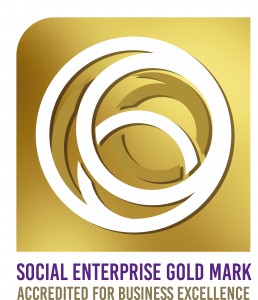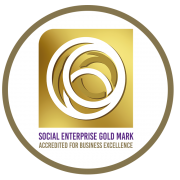Beyond certification – the Mark of a better business
 Following the news in the summer that Sainsbury’s are replacing the established and trusted FAIRTRADE Mark with their own in-house certification scheme, there seems to be a general trend in this direction by big producers. Multinational giants Mondelez International (which owns Cadbury), Unilever, and Barry Callebaut (world’s biggest producer of chocolate and cocoa products) have all confirmed they are now using their own ethical standards, eschewing independent third party labels.
Following the news in the summer that Sainsbury’s are replacing the established and trusted FAIRTRADE Mark with their own in-house certification scheme, there seems to be a general trend in this direction by big producers. Multinational giants Mondelez International (which owns Cadbury), Unilever, and Barry Callebaut (world’s biggest producer of chocolate and cocoa products) have all confirmed they are now using their own ethical standards, eschewing independent third party labels.
This is a worrying development. How do we know how rigorous standards are really being applied and assessed if they are not subjecting themselves to third party scrutiny? Multinationals and corporates make huge shareholder profits, and not to submit themselves to third party scrutiny seems to further reduce the accountability of their operations. As I wrote in my blog about the Sainsbury’s story back in July, we are concerned that this could also lead to erosion of consumer trust in any labelling schemes, which should ultimately exist to engender this trust, not damage it.
Social Enterprise Mark CIC has recognised that standards should not just provide openness and transparency, they should also challenge the business to become even better at what it does. This is why we now collect social value information on an ongoing basis, alongside developing the far more demanding Social Enterprise Gold Mark, which goes into much more depth around ethical practice in every area of the business, from procurement and sourcing to employee relations and governance.
 The Social Enterprise Gold Mark was developed to provide a quality benchmark for social enterprises that can demonstrate excellence in key business areas, such as governance, business ethics, and social/environmental impact. As well as providing proof of a commitment to business excellence, it also acts as a business development tool – successful applicants receive an individually tailored action plan for continuous improvement, in line with Social Enterprise Gold Mark guidelines of best practice. Therefore, it is very much an ongoing development process, not just covering a snapshot in time at the point of assessment.
The Social Enterprise Gold Mark was developed to provide a quality benchmark for social enterprises that can demonstrate excellence in key business areas, such as governance, business ethics, and social/environmental impact. As well as providing proof of a commitment to business excellence, it also acts as a business development tool – successful applicants receive an individually tailored action plan for continuous improvement, in line with Social Enterprise Gold Mark guidelines of best practice. Therefore, it is very much an ongoing development process, not just covering a snapshot in time at the point of assessment.
Given the high-profile scandals that have hit big brands such as Mondalez (formerly Kraft), which came under fire in 2011, when they closed a UK chocolate production factory following their takeover of Cadbury, there is a need for more businesses to submit to the scrutiny of external assessment with regards to their business practices and how they make and distribute their profits, and how they treat their workers.
At the time of the Cadbury takeover, Mondalez made assurances that production would remain in the UK and that the Somerdale factory would remain open. However, less than a week later an announcement was made that the factory would in fact be closed, at the cost of thousands of jobs.
In order to prove applicants’ businesses are excelling as genuinely socially responsible organisations, the assessment for the Gold Mark digs deeper to examine key aspects of the operations of a business. This includes looking at how they govern the organisation, employee engagement and terms of employment, as well as how income is used to create social and environmental impact.
Maybe this is the future of certification…. A visible and trusted identifier of those doing better business, in every aspect of their operations.




